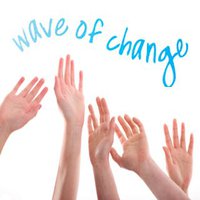I found myself hesitating over reporting a further attempt on the part of Oxfam to draw attention to the increasing plight of populations in poorer countries faced with the early effects of climate change. In this case it is Oxfam New Zealand’s Wave of Change campaign, highlighting climate impacts in the Pacific region.
Why was I hesitating? Fear of overdoing a theme? Recognition that there is not absolute scientific certainty that a particular event can be attributed to climate change? Caution about compassion fatigue? Foreseeing reactions from some that this is just another begging strategy devised by the pesky poor? A general feeling of hopelessness about the likelihood of rich nations taking a sustained interest in the plight of others, even when their responsibility for that plight is established? Not wanting to be seen as a bleeding heart liberal?
All these elements, and others, were discernible when I interrogated myself. None of them justified ignoring the Oxfam news release sitting in my inbox. All the more when I read George Monbiot’s latest Guardian article. His argument is more generally political than climate change related, and I don’t propose discussing it here in those wider terms. But his conclusion was entirely relevant to this post:
“People with strong intrinsic values must cease to be embarrassed by them. We should argue for the policies we want not on the grounds of expediency but on the grounds that they are empathetic and kind; and against others on the grounds that they are selfish and cruel. In asserting our values we become the change we want to see.”
So let me write briefly about the Wave of Change campaign. It’s timed as the Cancun conference comes into view. There appears to be some slight hope that Cancun will see advance on the transfer of finance and technology from developed countries to help developing countries adapt to climate change. Oxfam intends that New Zealand politicians and negotiators are well aware of the seriousness of the need of our Pacific Island neighbours in this respect. The declaration opening the short video on their website:
“People of the Pacific are among those to be hit first and worst by climate change.”
This isn’t just about the future danger of islands disappearing as a result of sea level rise, as Oxfam’s Coordinator Anne-Marie Mujica pointed out when launching the campaign:
“Right now people are struggling with salt poisoning their staple food crops and polluting their drinking water.”
A Pacific Conference of Churches spokesperson underlines this when he speaks on the video of the increase in the severity and frequency of extreme weather patterns.
“Salt water is now seeping into the food crops and the drinking water. Tropical storms are more fierce.”
One woman puts it simply:
“Seawater is coming. Every high tide I have water in my front yard.”
The campaign seeks a fair deal. Two Pacific Islanders on the video say it:
“Our Pacific urgently requires a fair deal on climate change.”
“We need to protect our Pacific regions. We need to speak out loud and clear for a fair and ambitious deal on climate change.”
Fair deal is the right note to strike since issues of justice are clearly involved when the effects of emissions are felt by those least responsible for them. One woman speaker says:
“Climate change is not just about science; climate change is about human rights.”
These are island voices. People alarmed by what they see happening where they live and asking for attention and fair treatment. Auckland is the most appropriate city in the developed world for their voice to be raised loud and clear.
Awareness-raising events taking place around Auckland this week are detailed on this Facebook page.
One of the campaign activities suggested is writing to the NZ Prime Minister. He should be open to the plea. New Zealand has signed up to the Copenhagen Accord and consequently no doubt expects to make a proportionate contribution to the funding targets outlined in that Accord to assist developing countries adapt to and mitigate climate change.
Last word to Oxfam’s Mujica:
“New Zealand may be a small country, but we’re a big player in the international climate talks. Our negotiators lead, or are members of, important working groups. It’s time to show the government that its citizens want them to do more to protect our Pacific.”



 As an example of contradictory thinking it would be hard to better Energy and Resources Minister Gerry Brownlee this week. He was announcing that oil and gas exploration in New Zealand is to get a substantial boost in government resources, including funding to further the possible exploitation of deep-sea methane hydrates.
As an example of contradictory thinking it would be hard to better Energy and Resources Minister Gerry Brownlee this week. He was announcing that oil and gas exploration in New Zealand is to get a substantial boost in government resources, including funding to further the possible exploitation of deep-sea methane hydrates. Back in March I
Back in March I  Christopher, Viscount Monckton of Brenchley, pompous peer of a parish in Kent, not content with threatening legal action against US scientist John Abraham (who had the temerity to point out the huge number of errors and misrepresentations in a talk he gave: see
Christopher, Viscount Monckton of Brenchley, pompous peer of a parish in Kent, not content with threatening legal action against US scientist John Abraham (who had the temerity to point out the huge number of errors and misrepresentations in a talk he gave: see